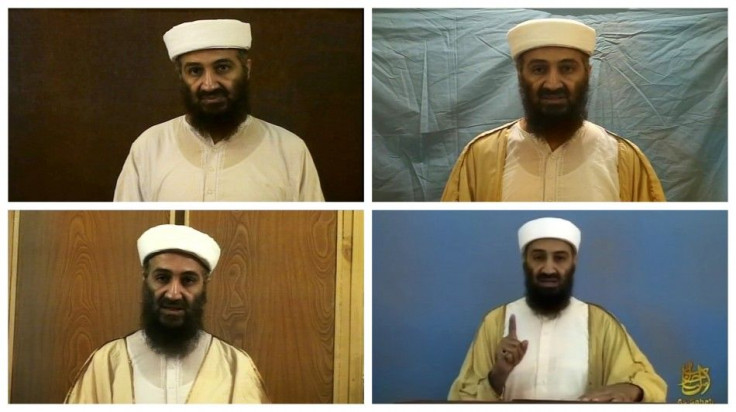Osama Bin Laden, Technologist: Reading List Reveals Terror Chief Was Video, Tech Geek

Osama bin Laden wasn’t just the world’s most wanted terrorist: He was also a keen amateur student of the French economy, very interested in technology and possibly even into silkscreen printing. And, for someone whose al Qaeda organization was based entirely on the concept of religious war, he was focused a lot more on secular subjects than on reading about Islam. His bookshelves were heavy with material on subjects ranging from printer and software manuals to a hefty cache of documents on France’s economy (and, more ominously, on its nuclear power industry.)
That’s the portrait of the al Qaeda mastermind emerging from a list of dozens of documents found in his lair in Abbottabad, Pakistan, after U.S. special forces killed him on May 2, 2011. The U.S. Director of National Intelligence released on Monday a selection of material found in his compound, including odd titles like “Guinness Book of World Records Children’s Edition,” “Is It the Heart You Are Asking?” (a suicide prevention guide), and, perhaps most curiously, instructions on how to create silk-screen prints.
But the most telling thread that runs through his choice of reading material is his vast interest in technology and its uses for terrorism -- a list that is especially intriguing for someone who didn’t have an Internet connection. His Abbottabad house was kept off communication networks for fear of interception, and he relied on couriers to bring him material and carry his instructions to the field.
Bin Laden was researching topics like video and audio propaganda, recruitment of experts in the field of technology and the importance of an online presence, which have become the cornerstone of success for terrorist organizations like the Islamic State group that came after al Qaeda’s rise to global prominence.
The list of titles found in Bin Laden’s computers (he used an Apple printer and McAfee VirusScan 6.0, the documents also reveal) includes at least 30 under the “Software and Technical Manuals” section. Bin Laden was allegedly reading the manuals for Adobe Photoshop, the Nikon Color Efex Pro Manual (photo-editing software) and Dreamweaver -- those are all helpful tools if one was building a website, indicating that the Internet-less Bin Laden may have been thinking about the value of online propaganda years before the Islamic State group, also known as ISIS, made it the cornerstone of its strategy.
An early link between Bin Laden’s terror group and ISIS appears among his collection, which includes -- among propaganda published by various extremist groups -- two statements issued by the al Furqan media house. Al Furqan used to be the main media outlet of al Qaeda’s branch in Iraq and is now still used for ISIS statements meant for the entirety of the so-called caliphate. For example, al Furqan is used to disseminate statements from ISIS leader Abu Bakr al Baghdadi or ISIS spokesman Sheikh al Adnani.
Bin Laden was also a pioneer in the use of video to spread the ideology of violent jihad. Among the titles on his figurative bookshelf are “The Art of Digital Video,” the Astarte DVD export manual and a manual for SurCode for Dolby Digital, a sound converter. Al Qaeda was, after all, the terror organization that debuted the brutal propaganda tactic of execution videos: In 2002, the group released a gruesome video showing the beheading of American journalist Daniel Pearl. More than a decade later, ISIS had taken those gruesome videos to a new level of technical refinement.
The “Now Declassified Material” section includes a document titled “Terror Franchise” allegedly written by Abu Saleh al-Somali, a Somalian whom the U.S. deemed a part of “al Qaeda's core leadership.” The text is a call to recruitment of “technical people,” focusing on the importance of technology when it comes to disseminating terrorist propaganda and improving their weaponry.
“The main reason they continue to kill us is because we do not have the knowledge nor the resources to counter the technology they are using against us,” Saleh wrote, referring to America and its allies. “You technical people out there can play the most important role in the close-to end stage of this battle.”
© Copyright IBTimes 2024. All rights reserved.






















